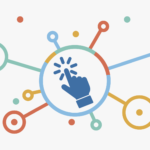Every financial institution that wants to remain relevant in the future must embrace digital banking transformation trends, especially these 7 that are expected to dominate 2021:
- Increased focus on digital banking experiences – financial institutions must work to determine what really matters to consumers, identify projects to improve important experiences and prioritize efforts with the biggest potential upside.
- Use of data and artificial intelligence (AI) for predictive personalization – the coming year will bring the next evolution of financial marketing, which will leverage data and advanced analytics to provide predictive personalization. This use of AI and machine learning will result in tailored websites, real-time financial recommendations and a level of test and learn capabilities far beyond what was imagined just a few years ago.
- Movement to cloud computing – with the importance of processing increasing amounts of data as quickly as possible and the desire to provide increased accessibility to insights across organizations, the use of hybrid cloud infrastructures will escalate significantly in 2021.
- Automation as a financial imperative – although still in its infancy within the financial sector, robotic process automation (RPA) provides numerous benefits, including cost reduction, increased efficiency, enhanced accuracy, improved customer experiences and seamless flexibility. This trend is gaining momentum because of the influx of external providers who have leveraged lessons learned over time to provide scalable solutions at a reasonable cost for both large and small institutions.
- Increased investments in privacy and security – cybersecurity and data privacy will become a unique selling proposition for many financial institutions and big tech organizations. While consumers will ultimately be the owners of their identities, it is likely that financial institutions will be the places where their identities are maintained.
- Redefined future of work – financial institutions are rethinking the way work is done, where it is done and the skills needed to get it done. More than ever before, they are realizing the importance of flexibility, adaptability, self-sufficiency and teamwork. Moreover, there is not likely to be a return to traditional corporate office spaces as many financial institutions now see the benefits of remote work.
- Open banking as a revenue opportunity – there is a great potential for open banking to lead to new revenue opportunities, especially as new banking solutions with seamless customer experiences and multiple interconnected providers in the background become the norm.
 BFC Bulletins Monthly News Digest
BFC Bulletins Monthly News Digest




